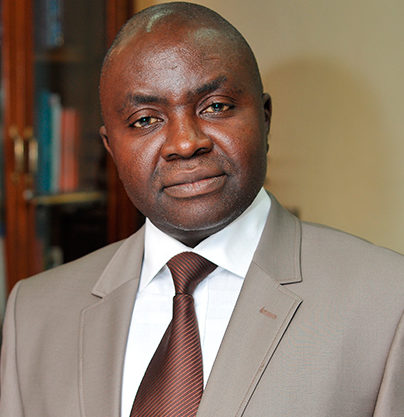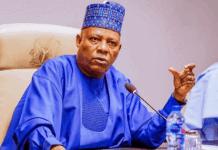The Chief Executive Officer, CEO of the Center For The Promotion Of Private Enterprise, CPPE, Dr. Muda Yusuf has predicted that the value of Nigeria’s oil and gas industry currently at N12 trillion based on Gross Domestic Product, GDP in 2022, is set to progress further with ongoing Reforms
Yusuf, said the oil and gas industry in Nigeria is a multi-billion dollars industry and the prospects for the growth of the industry have heightened considerably.
Speaking at the 2023 conference organized by Oriental News in Lagos with the theme “Building Local Content Synergy between the Oil and Gas and Insurance Sectors in Nigeria” the CPPE boss said the growth opportunities is further informed by new investment prospects valued at over $50bn showcased by international and indigenous companies at the last Nigerian Oil and Gas Opportunity Fair (NOGOF) in Yenagoa, Bayelsa State.
These prospects are projected to be developed within five years and are phenomenal opportunities for the insurance industry.
Additionally, the Petroleum industry Act, PIA, he continued has unlocked tremendous investment potentials in all aspects of the oil and gas sector – upstream, downstream and service sectors and has created much better regulatory and institutional environment for investment growth across the broad spectrum of the sector.
Unfortunately, he said the insurance which is a N647 billion industry going by its contribution to the country’s GDP in 2022 is a mere 0.32 per cent of our GDP.
In a N202 trillion economy, this is not a significant contribution, he opined.
“This underscores the fact that the sector has enormous prospects for growth amid the huge potentials that exist in Nigeria.
“The sector contributes to the growth of the economy through the provision risk indemnification and transfers. The industry players also deliver value as institutional investors in the economy.”
Yusuf noted.
He said the theme of this summit is quite apt and the good news is that the Nigeria Oil and Gas Industry Content Development Act already provides a robust legal and regulatory framework for synergy between Insurance Industry and the Oil and Gas sector in Nigeria. Speaking further he said, “But we need a solid framework for collaboration and partnership between the insurance community, the oil sector investors, the NAICOM and the Nigerian Content Monitoring and Development Board, NCMDB to be put in place to harness the enormous potentials
” let me advise insurance industry players to strengthen their public policy advocacy to boost the demand side of insurance by ensuring compliance with current provisions with respect to mandatory insurance as current level of compliance is extremely weak.”
He also advised the industry to promote and deepen insurance premium subsidy in critical areas of the economy such as agriculture, health and climate change projects among others.
In his speech, the Executive Secretary , ES, of NCDMB, Simbi Wabote, said over the years, the Board has taken deliberate steps to forge collaboration with various critical stakeholders to support the attainment of its strategic goals and mandate.
Wabote, who was represented by Mr. Daziba Patrick Obah. Director, Corporate Services of NCDMB, stated that stakeholders’ engagement and collaboration is one of the key enablers to the Board’s ten-year strategic road map designed to achieve 70 per cent Nigerian content performance by the year 2027.
According to him, This is the reason for various engagement and collaboration between NCDMB and several MDAs, including NAICOM which crystalized in the joint issuance of the Insurance Guideline in 2022 to support the implementation of the insurance requirements contained in Sections 49 and 50 of the NOGICD Act 2010.”
He explained that the main benefit of the guidelines is the creation of a database of all insurance programs procured by the operators, project promoters, alliance partners, and Nigerian indigenous companies, to enable the Board monitor utilization of in-country insurance capacity thereby enhancing in-country value retention.
Also speaking, the Commissioner for Insurance, National Insurance Commission (NAICOM), Sunday Thomas said the Commission has intensified its ongoing drive to facilitate platforms that address the demand-supply gap in the oil and gas Industry.
Thomas, said that the synergy between the two industries would encourage specialized insurance products that meet the needs of the oil and gas industry.
He said the Commission was poised to address all potential regulatory impediments, support the development of human capacity and ensure technical capacities of insurance suppliers in the industry.
Others, he said include adequate risk pricing, comprehensive coverages and risk management.
“As a regulator, we are committed to creating an enabling environment that will consistently enhance increased capacity of the insurance institutions, both financially and technically.
“Beyond our promises and without pre-empting the paper presenters and discussants, I will express the need for reciprocal expectations from the operators in the oil and gas sector.
“One of which is timely compliance with the requirements of the guidelines, jointly issued by the commission and the Nigerian Content Development and Monitoring Board (NCDMB).
According to him, the drive toward enhancing local content speaks to the long-term plan of the government, burn out of good intention and strategy to grow its economy, develop the Nigerian industries and human capital.
Thomas explained that prior to the Nigeria Oil and Gas Industry Content Development Act of 2010 (NOGICD ACT), the Insurance Act 2003 made provisions for the domestication and domiciliation of insurance services in Nigeria.
He said that this is stated, in Section 65(7), which made it compulsory for any property located in Nigeria, whether moveable or immovable to be insured with a Nigerian registered insurer.
The commissioner said Section 67 requires that insurance of all imports into Nigeria must be insured by registered insurers.
Thomas stated that the historical relationship between both the oil and gas, and insurance industries could be traced to the birth of the latter, following the issuance of the NOGICD ACT.
He expressed that the insurance industry, in collaboration with the NCDMB, brainstormed and came up with the issuance of the Guidelines for oil and gas insurance business issued in 2010.
According to him, the guideline, among others, stipulates the roles and responsibilities of insurance institutions in ensuring compliance with local content law.
He, however, said that was with the primary consideration of ensuring actual exhaustion of available In-Country Insurance Capacity.
Thomas said the overall aim of the guideline is the development of indigenous content through increased local participation.
“The synergy between both industries was renewed when both agencies identified the need for a veritable platform for inter-agency collaboration.
“This is in order to give effect to the requirements of Sections 49 and 50 of the NOGICD Act 2010 by providing guidance to operators in the oil and gas, necessary for satisfying the provisions of the law in relation to insurance transactions.
“The journey for the renewed collaboration transited to the signing and unveiling of the guidelines on submission of insurance program by operators, project promoters, Alliance partners, and indigenous companies in the Nigerian oil and gas industry,” he said.
According to him, NAICOM has shown a positive attitude to market development by the release of the Soundbox Guidelines which is an instrument to test ingenuities in the market.
Thomas said, the commission sought to facilitate and promote innovative insurance solutions that would address the gaps in current insurance offerings.
The NAICOM boss stated that following the mandate to develop indigenous capacities to participate in the oil and gas industry, both regulators would collaboration to facilitate and promote adequate assessment of the needs of the oil and gas industry.
He noted that both regulators must also be able to influence the behavior of Insurers, Reinsurers and Brokers in manners that address the needs for national growth and development.

























